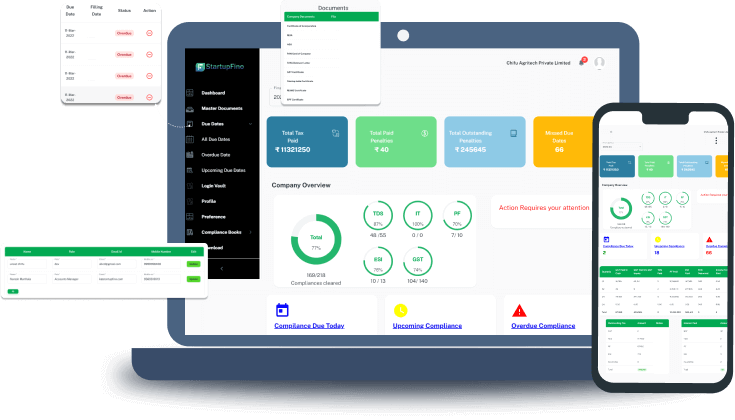Insurance products can today be marketed to policyholders through various channels, be it online or offline. The IRDA Insurance Licence is the official certification allowing insurance companies to commence their operations.
Before the Insurance Regulatory Development Authority of India or IRDAI came, the regulation of insurance operated under the Insurance Act of 1938. Various laws and regulations were enacted post-1938. In the mid-1950s, a significant shift occurred as insurance companies were nationalised, including the Life Insurance Corporation of India. The LIC essentially took charge of most life insurance businesses. This wave of nationalisation led to a reduction in the number of insurance firms in India, consolidating the industry under a few key players.
An important enactment was the Insurance Regulatory and Development Act of 1999 (IRDAI Act). Its purpose was to effectively regulate the insurance landscape in India and propel the growth of the insurance sector. The IRDAI Act governs important aspects such as the registration of insurance businesses, the issuance of IRDAI Licences to commence insurance operations, and safeguarding the interests of policyholders. Additionally, it is the nodal agency responsible for ensuring that firms adhere to evolving regulations.
Role of IRDA Insurance Licence for Your Business
The Insurance Regulatory and Development Authority of India functions as an important entity overseeing the insurance sector in the country. Its role extends beyond mere regulation, including comprehensive monitoring to ensure a fair equilibrium between insurance firms and policyholders.
Given that insurance involves financial products with significant implications, obtaining an IRDA insurance licence is an important step. Insurance contracts essentially promise indemnity to policyholders based on specific events. These financial and contractual dimensions require continuous oversight and regulation. Obtaining registration before starting on an insurance business is a fundamental requirement to deal with this important sector.
Requirement of Obtaining an IRDA Insurance Licence
Businesses are required to obtain the IRDA Insurance licence due to the following reasons:
1. Ensuring Compliance with IRDAI Laws and Regulations
The primary purpose of acquiring an IRDA licence is to ensure that the insurance business operates in strict adherence to the laws and regulations established by the Insurance Regulatory and Development Authority of India.The IRDAI periodically updates these regulations to maintain the integrity and fairness of the insurance sector.
2. Effective Control and Regulation of Insurance Sector
The insurance industry is subject to rigorous regulation in India to safeguard the interests of consumers and maintain financial stability. Obtaining an IRDA Insurance Licence is a fundamental step in this control mechanism. It allows the IRDAI to exert authority over insurance businesses, ensuring that they operate ethically and responsibly.
3. Demonstrating Commitment to Rules and Consumer Protection
Securing an IRDA Licence serves as a public demonstration of an insurance company's commitment to following the established rules and regulations. It provides assurance to both consumers and regulatory authorities that the insurance provider operates with utmost care and protection in mind, safeguarding the interests of policyholders.
4. Monitoring and Grievance Handling
The IRDAI, through the issuance of licences, establishes a framework for continuous monitoring of insurance businesses. This oversight ensures that insurers uphold their obligations and provide fair services to policyholders. Additionally, the IRDAI acts as a grievance handling mechanism, addressing policyholders' concerns and resolving disputes promptly and impartially.
Regulatory Authorities for IRDA Insurance Licence in India
In the context of obtaining an IRDA Insurance Licence in India, several key regulatory authorities and laws come into play:
- IRDAI - Insurance Regulatory and Development Authority of India
The main authority for regulation of IRDA Insurance Licences is the Insurance Regulatory and Development Authority of India, which plays a central role in enforcing regulations to ensure the proper functioning of the insurance industry.
- Companies Act 2013 or Companies Act 1956
The legal framework for insurance businesses in India are is also provided by the provisions of the Companies Act 2013 and the Companies Act 1956. These acts define the corporate structure and governance standards that insurance companies must adhere to while operating in the country.
- IRDA (Registration of Indian Insurance Companies) Regulations 2000 (the Registration Regulations)
The IRDA Registration Regulations, provide specific guidelines and requirements for the registration and operation of Indian insurance companies. Compliance with these regulations is important when applying for and maintaining an IRDA Licence.
- IRDAI (Re-insurance) Regulations 2018 (Reinsurance Regulations)
The Reinsurance Regulations, are meant for reinsurance activities conducted by insurance companies in India. These regulations outline the rules and procedures governing reinsurance arrangements, and adherence to them is vital for insurance businesses seeking an IRDA Licence.
- Other Relevant Regulations
Apart from the aforementioned regulations, there may be other specific and relevant regulations that apply to securing an Insurance Licence in India. These could include sector-specific guidelines or directives issued by the IRDAI or other government authorities.
Different Types of Insurance Businesses Requiring an IRDA Insurance Licence
In India, the Insurance Regulatory and Development Authority issues licences for various types of insurance businesses. Given below are the different types of insurance businesses for which an IRDA Insurance Licence is required:
- Life Insurance Business:
This includes insurance products and services related to life and mortality, such as term life insurance, whole life insurance, and endowment policies.
- Fire Insurance Business:
Fire insurance provides coverage against damages and losses caused by fire, including property and assets.
- General Insurance Business:
General insurance includes a range of non-life insurance products, including motor insurance, health insurance, etc.
- Professional Indemnity Insurance Business:
Professional indemnity insurance, also known as errors and omissions insurance, covers professionals against claims for negligence or professional misconduct.
- Burglary Insurance Business:
Burglary insurance offers protection against losses resulting from theft, burglary, or attempted theft.
- Cyber Liability Insurance Business:
Cyber liability insurance provides coverage for losses or liabilities arising from data breaches, cyberattacks, and other cyber-related incidents.
- Marine Insurance Business:
Marine insurance covers risks associated with the transport of goods and cargo by sea, air, or land, including marine hull insurance and cargo insurance.
- Reinsurance Business:
Reinsurance companies provide insurance coverage to primary insurers. They help spread the risk of large claims and ensure the stability of the insurance market.
Eligibility Criteria for Obtaining an IRDA Insurance Licence for Insurance Business in India
Before applying for an IRDA Insurance Licence to start an insurance business in India, applicants must meet certain eligibility criteria, including the following:
- Capital Requirements
For initiating a general insurance business, a minimum capital of Rs. 100 croresis required.
For establishing a reinsurance business, the minimum capital requirement is Rs. 200 crores.
- No Previous Application Rejection
The applicant should ensure that any previous application for starting an insurance business has not been rejected by the regulatory authorities.
No application for starting an insurance business should have been rejected within the last five years prior to the new application.
- Valid Certificate
The applicant's certificate, issued by the IRDAI, must not have been cancelled or revoked by the regulatory authority.
- Business Name Requirement
The name of the proposed business must contain the word "insurance company" to clearly indicate its nature as an insurance entity.
- Equity Investment by Foreign Companies or Non-Resident Indians
If equity investment is made by a foreign company or NRI, min. 26% of the equity must be held by the foreign company or NRI.
- Banking Companies Approval from RBI
Banking companies seeking to venture into the business of insurance must obtain permission from the Reserve Bank of India, in addition to meeting the requirements set forth by the IRDAI.
Documents Required for Obtaining an IRDA Insurance Licence
Given below is a list of the essential documents required for an IRDA Insurance Licence:
- Evidence of Capital for an Insurance Business:
Equity capital of 100 crores as evidence of financial readiness for a general insurance business.
- Evidence of Capital for a Reinsurance Business:
Equity capital of 200 crores to demonstrate financial capability for a reinsurance business.
- Details of Directors:
Names and addresses of all directors associated with the applicant company.
- Qualifications of Directors:
Information about the qualifications and credentials of the directors.
- Certified Copy of the Prospectus:
A certified copy of the prospectus which gives the company's business plans, objectives, etc.
- Distinctive Share Numbers:
A statement specifying the distinctive numbers of shares issued to each promoter and shareholder in relation to the share capital of the applicant.
- Standard Forms and Policy Details:
A certified copy of the standard forms of insurance policies and statements of the rates, advantages, terms, and conditions to be offered in connection with insurance policies.
- Actuary Certificate (for Life Insurance Business):
In the case of a life insurance business, a certificate by an actuary confirming that the rates, advantages, terms, and conditions mentioned in the policies are workable and sound.
- Fee Payment Receipt:
The original receipt demonstrating the payment of the requisite fee (Rs.fifty thousandfor each class of business) for the registration process. This fee is paid via a bank draft issued by a scheduled bank in favour of the Insurance Regulatory and Development Authority.
- Certification from a Practicing Chartered Accountant or Company Secretary:
A certificate issued by a practicing CA or a CS certifying that all requirements related to registration fees, share capital, deposits, and other statutory provisions have been duly complied with by the applicant.
- Additional Information as Requested:
Any other documents or information that may be requested by the regulatory authority during the application processing phase.
Procedure for Securing an IRDA Insurance Licence for Insurance Business in India
Given below is the procedure to secure an IRDA Insurance Licence in India:
Step 1: Application Submission (Form IRDA/R1)
- The applicant has to initiate the application process by submitting a formal application online.
- This application is made using Form IRDA/R1, which serves as a requisition for registration application.
- If the application is accepted, the applicant then has to submit a formal application via Form IRDA/R2 for obtaining the certificate of registration.
- Further, the application must be submitted with:
- Certified copies of the Memorandum of Association and Articles of Association.
- Information about the directors and principal officer, including their names, addresses, and occupations.
- A statement specifying the class of insurance business proposed to be undertaken.
- Details of the sources contributing to the required share capital.
- Any other documents as required by the IRDA.
- Once Form IRDA/R1 is successfully completed, the IRDA will grant Form IRDA/R2 for the certificate of registration.
Step 2: Further Registration (Form IRDA/R2)
Form IRDA/R2 should include the following:
- Documentary proof of the deposit made as required under section 7 of the Act.
- Evidence of having at least 100 crores or more paid-up equity share capital for life insurance business or general insurance business, or 200 crores or more for reinsurance business.
- An affidavit from the principal officer and promoters certifying that the paid-up share capital meets the requirements, excluding preliminary expenses and deposits.
- A statement detailing the distinctive share numbers issued to each promoter and shareholder.
- An affidavit stating that the paid-up equity capital does not exceed 26%.
- Certified copies of the published prospectus.
- Certified copies of standard forms of insurance policies and related terms and conditions, along with an actuary's certificate for life insurance business.
- A certified copy of the memorandum of understanding between Indian and foreign promoters or among all promoters.
- The original receipt of the registration fee of Rs. 50,000 for a class of business
- Certificate from a practising CA or a practising CS stating that all requirements have been provided by applicant.
Step 3: Commencement of Business (Form IRDA/R3)
- Upon satisfying all the requirements and after the IRDA is convinced that the business is sound and fit for insurance operations, they will grant the certificate in Form IRDA/R3.
- After registration approval, the applicant must initiate their insurance business within 12 months.
- If the applicant is unable to commence operations within the time period, they have to formally request an extension from the regulatory authority before lapse of 12 months.
Validity and Renewal of IRDA Insurance Licence in India
An IRDA Licence for insurance business in India is subject to a specific validity period and requires periodic renewal:
Validity of IRDA Insurance Licence:
An IRDA Licence for insurance business in India is initially valid for one year.
Renewal of IRDA Insurance Licence:
To continue operating in the insurance business, the licencee (insurance company) must renew their IRDA Licence annually.
IRDA Insurance Licence Renewal Process:
- The licencee must submit an application for renewal using Form IRDA/R5.
- This renewal application must be submitted before the deadline, which is before December 31st of each year.
Evidence and Fee for Renewal:
When applying for renewal, the licencee must provide evidence of renewal.
The fee for renewal includes the following components:
The fee structure for insurance business renewal includes three components:
- Base Fee: A set fee of fifty thousand rupees per class of insurance.
- Percentage Fee: An additional fee of one-fifth of 1% of the total gross premium of the insurance business in their previous FY.
- Maximum Limit: The renewal fee can be max. at Rs 5 Crore.
Penalty for Late Renewal:
If the insurance company fails to renew its licence by December 31st each year, the application will be still accepted but a penalty will be levied which comes to 10 percent of the fees.
Payment of Renewal Fees:
The renewal fees should be paid into the account maintained by the Insurance Regulatory and Development Authority of India with the Reserve Bank of India.
Duplicate Certificate:
In case an insurance company requires a duplicate certificate, the IRDAI has the authority to issue one.
To obtain a duplicate certificate, the applicant must submit an application under IRDA/R4 and make a payment of Rs 5000.
Grant, Refusal and Cancellation of Registration Certificate for Insurance Business in India
The process of obtaining and maintaining a Registration Certificate for insurance business in India involves several key considerations, including:
Grant of Registration Certificate:
The Insurance Regulatory and Development Authority grants a Certificate of Registration to an insurer only after evaluating certain conditions. These conditions include:
- Sound Financial Condition and Management Character:
The insurer must demonstrate a sound financial condition and have a management team of good character.
- Adequate Volume, Capital Structure, and Earning Prospects:
The applicant company should possess adequate volume, a suitable capital structure, and favourable earnings prospects.
- Fulfilment of the Public Interest:
The insurance business should be such so as to fulfil the general public interest.
Refusal of Registration:
An applicant may face refusal of registration as an insurer for various reasons, including:
- Inadequate or Improper Information:
Providing inadequate or improper information during the application process.
- Delay in Providing Information:
Excessive delay in furnishing required information.
- Non-Fulfilment of Capital Requirements:
Failure to meet the specified capital requirements.
- Improper Conduct of Management:
Demonstrating improper conduct or management practices.
- Other Grounds as Decided by the Authority:
Any other reasons deemed fit by the regulatory authority.
On denial, there is option to appeal to the Central Government within 30 days from the date of Authority's decision.
Cancellation of Registration:
The authority also has the right to cancel the registration if the insurer fails to comply with the conditions given or for failure to meet any of the basic essentials for the licence as mentioned in the eligibility and documentation requirements or if they are involved in more than one insurance business.
Why Choose StartupFino for IRDA Insurance Licence in India?
There are a number of insurance businesses that require a specific IRDA Licence to operate legally in India. Obtaining the appropriate licence is essential for insurance companies to offer their services and products within the regulatory framework set by the IRDAI.
It also becomes essential to acquire an IRDA Insurance Licence for your insurance business due to the nature of the insurance sector in India and to ensure compliance with the regulations set by IRDAI for this industry.
StartupFino is a company that specialises in offering complete services for IRDA InsuranceLicence. We can help you with everything from providing advice in the initial phase to ensuring that you meet all the necessary requirements and compliances for your IRDA Insurance licence and registration.































































